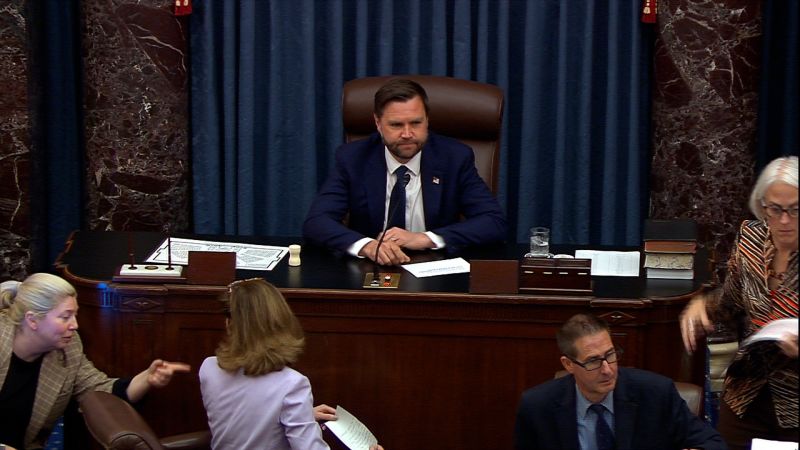After an intense marathon voting session, the Senate has passed President Donald Trump’s extensive domestic policy bill, a significant legislative achievement for the administration. The bill, which covers a broad range of issues from healthcare to infrastructure, now moves to the House of Representatives for further consideration.
The approval came late Wednesday night following hours of debate and negotiation among senators. The bill’s passage marks a pivotal moment for Trump’s domestic agenda, which has faced numerous hurdles in Congress. The legislation aims to overhaul several key sectors, promising sweeping changes that could impact millions of Americans.
Key Provisions and Impacts
The bill includes major reforms in healthcare, aiming to reduce prescription drug prices and expand access to medical services. Additionally, it proposes significant investments in infrastructure, targeting roads, bridges, and public transportation systems across the nation.
One of the most contentious aspects of the bill is its approach to tax reform. Critics argue that the proposed tax cuts disproportionately benefit the wealthy, while supporters claim they will stimulate economic growth and job creation.
“This bill is a comprehensive approach to revitalizing our nation’s economy and ensuring that every American has the opportunity to succeed,” said Senate Majority Leader Mitch McConnell.
Historical Context and Challenges
This development follows a long history of legislative challenges for similar comprehensive bills. Historically, sweeping domestic policy reforms have faced significant opposition, often requiring extensive negotiation and compromise. The Affordable Care Act, for instance, underwent numerous revisions and faced intense partisan battles before its eventual passage.
According to political analysts, the current bill’s success in the Senate is partly due to strategic concessions made by Republican leaders to secure the necessary votes. The inclusion of certain provisions aimed at winning over moderate senators was crucial in achieving the majority needed for passage.
Expert Opinions and Reactions
Experts are divided on the potential impact of the bill. Some economists warn that the proposed tax cuts could lead to increased deficits, while others argue that the economic growth spurred by the bill could offset these concerns.
Dr. Emily Rivera, an economist at the Brookings Institution, noted, “While the bill promises economic growth, the long-term fiscal implications cannot be ignored. It’s essential to balance immediate economic benefits with sustainable fiscal policies.”
Meanwhile, healthcare advocates have expressed cautious optimism about the bill’s provisions to lower drug prices, though they remain concerned about the potential impact on healthcare access for vulnerable populations.
Next Steps and Political Implications
As the bill moves to the House of Representatives, it faces another round of scrutiny and potential amendments. The House, with its own set of priorities and political dynamics, may present further challenges to the bill’s passage.
The move represents a critical test for the Trump administration’s ability to navigate the legislative process and deliver on its policy promises. Success in the House could solidify Trump’s domestic policy legacy, while failure may highlight the ongoing challenges of governing in a deeply divided political landscape.
Looking forward, the outcome in the House will have significant implications for the upcoming elections, as both parties seek to leverage the bill’s provisions to galvanize their respective bases. The political stakes are high, and the coming weeks will be crucial in determining the bill’s ultimate fate.
 Wall Street Divided as Tesla and Tech Stocks Tumble Amid Broader Gains
Wall Street Divided as Tesla and Tech Stocks Tumble Amid Broader Gains Hurricane Flossie Threatens Mexico as It Nears Major Status
Hurricane Flossie Threatens Mexico as It Nears Major Status Federal Scrutiny on Hollywood’s Diversity Quotas for Oscars Intensifies
Federal Scrutiny on Hollywood’s Diversity Quotas for Oscars Intensifies Air India CEO Unveils State-of-the-Art Training Facilities to CNN’s Richard Quest
Air India CEO Unveils State-of-the-Art Training Facilities to CNN’s Richard Quest Wilmington Teen Arrested for Gun Possession Sparks Community Concerns
Wilmington Teen Arrested for Gun Possession Sparks Community Concerns